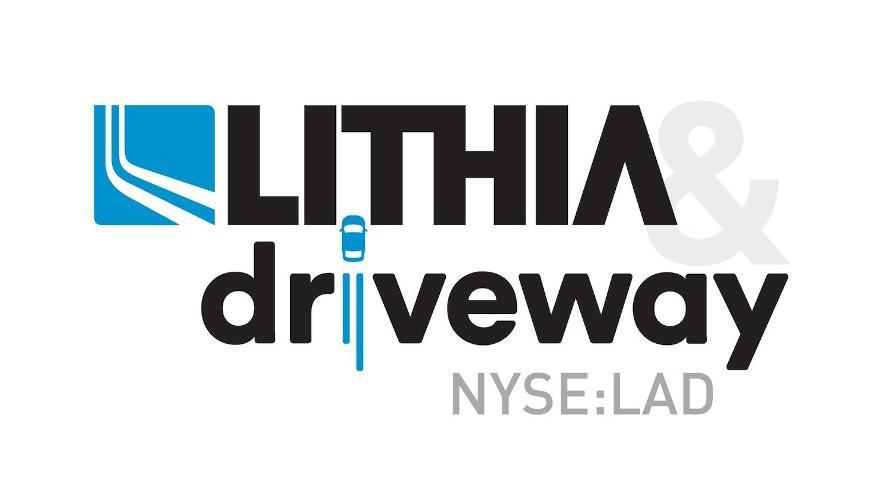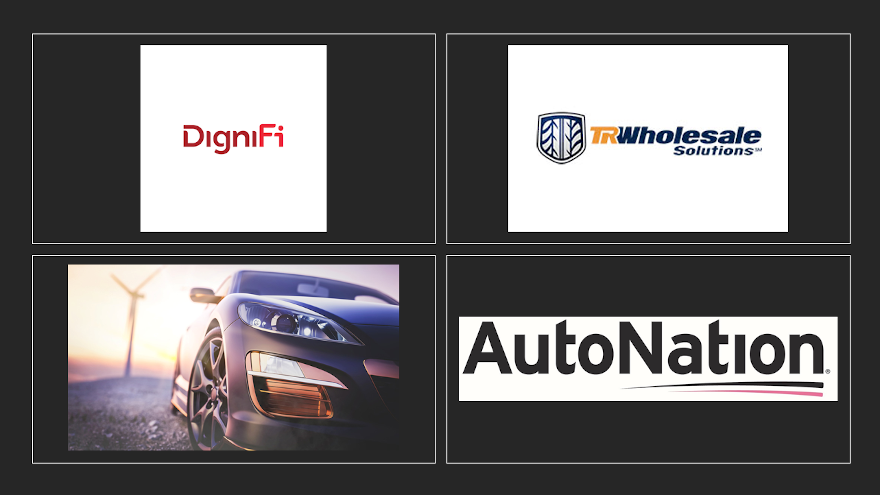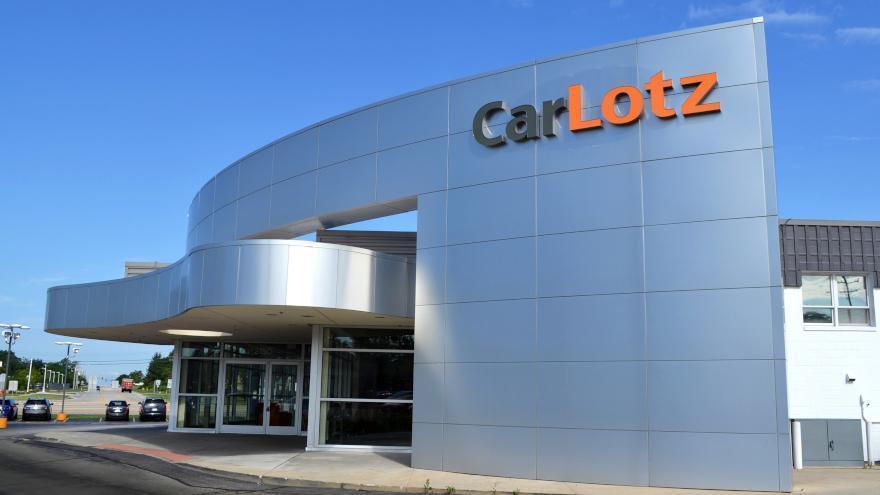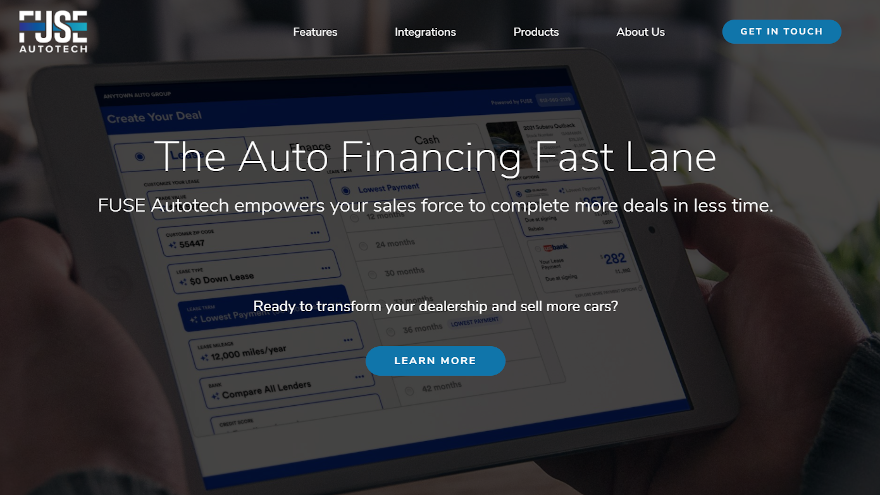TrueCar is trying to improve the financing process for dealerships and vehicle shoppers that might engage with its website.
On Friday, TrueCar announced a new experience powered by Capital One that allows eligible shoppers to pre-qualify for auto financing through Capital One and Westlake Financial as they begin their car-buying journey with TrueCar Certified Dealers.
According to a recent TrueCar survey, 76% of vehicle shoppers said they would be somewhat or very likely to calculate personalized monthly payments online. Consumers also expressed the desire to compare different monthly payment options and terms online.
TrueCar explained that it launched its new pre-qualification experience to increase consumer confidence through deal transparency and deal comparisons for a more efficient vehicle-buying experience.
The TrueCar auto finance pre-qualification experience will be rolled out among TrueCar Certified Dealers nationwide that offer financing through Capital One or Westlake Financial.
Consumers can use the pre-qualification experience for both new and used vehicles, according to a news release.
“The most important things to consumers during their car shopping experience are ease and speed. We are excited to partner with Capital One to expand our ability to provide pre-qualification options for consumers,”, at TrueCar chief executive officer and president Mike Darrow said in the news release.
“This allows car shoppers to feel even more confident in having the transparent and efficient experience they have come to trust from TrueCar,” Darrow continued.
Capital One managing vice president Jeppe Heidemann added, “As a longtime leader in auto financing, and firm believers in the power of digital tools to enhance the car buying experience, we are proud that this partnership can bring transparency to TrueCar’s shoppers.”
Factory shutdowns. Stay-at-home orders. A microchip shortage. Those are just a few of the events that occurred in what’s been nothing short of a challenging year and a half for the automotive industry, particularly in regard to new vehicle financing. Inventory shortages and the economic fallout during the early months of the pandemic drove new vehicle loan originations down, bottoming out last year at 38.05% of total financing in Q2 2020.
Many industry pundits were unsure of the long-term effects of the pandemic, however, the industry proved resilient. With fewer car buyers in the market for a new vehicle a year ago, captive finance companies offered manufacturer incentives and other low-interest rate deals to bring consumers back into the showroom. Now, more than a year later and despite new car incentives being fewer and far between, the new vehicle finance market has rebounded.
According to Experian’s Q2 2021 State of the Automotive Finance Market, new vehicle originations made up nearly 45 percent of total vehicle financing during the quarter, compared to just over 38 percent a year ago. Some of the increase can be attributed to the anomaly that was 2020, however, it’s worth noting that new vehicle originations only made up 40.34% of total financing in Q2 2019.
What’s driving the change?
Despite the percentage of new vehicle originations growing, used vehicles still make up the overwhelming majority of vehicle transactions. However, we are seeing more prime and super prime borrowers opting for new vehicle financing. Findings from our report show that in Q2 2021, 60.45% of prime borrowers and 43.61% of super prime borrowers elected to finance a used vehicle, down from 63.38% and 46.87% a year ago, respectively.
While the automotive market has proved to be fluid over the past year, we can’t lose sight of the impact that new and used vehicle inventory shortages have had on used vehicle prices and values. Although the average MSRP for a used vehicle is still well below that of a new vehicle, with many vehicle owners seeing a higher return on their trade-ins, some could be transitioning back into the new vehicle market.
The state of new-vehicle financing
Despite the ups and downs of 2020 and the first half of 2021, new vehicle financing has returned closer to pre-pandemic levels. For example, based on our findings, the average loan amount for a new vehicle actually decreased to $35,163, down $958 from a year ago—the average loan amount for a new vehicle peaked in Q2 2020 mostly due to the increase in full-size pickup trucks. Additionally, the average loan term dropped to 69.36 months, down from 71.31 months a year ago, and much closer to the 68.84-month mark two years ago. On the flip side, the average loan rate for a new vehicle increased slightly to 4.09%, however is still well-below the 5.70% in Q2 2019.
Although the average loan amount for a new vehicle decreased nearly $1000 in Q2 2021, it’s still well above $32,345 in Q2 2019; and that’s partly due to the continued infatuation Americans are having with SUVs and CUVs. In Q2 2021, SUVs and CUVs made up 57.54% of newly financed vehicles, up from 53.61% a year ago and a 45% increase from 2016.
Helping prospective shoppers find the right financing
The market is still somewhat in uncharted territory, navigating the microchip shortage and subsequent inventory fallout. Adapting to the fluidity of the environment will require lenders and dealers to closely monitor trends and understand car buyers’ financial situations to find the most advantageous loan terms for the consumer and continue selling cars. One way to do that is to leverage expanded FCRA-regulated data sources, such as rental, utility, telecom and streaming service payments into their lending decisions. These additional data attributes can create a more accurate picture of a car buyer’s financial situation, particularly those with limited-to-no credit history, and more importantly, help lenders approve more auto loans to consumers with affordable payment terms without taking on additional risk.
While new-vehicle financing has recently rebounded, how long the inventory shortage continues to impact the market remains unclear. That said, some industry experts believe low inventories will continue to impact the market for the foreseeable future. That means, used vehicle values could remain high and continue to influence new and used vehicle purchasing decisions. Staying on top of these trends will better position lenders and dealers to make sound business decisions and hopefully continue to prove the automotive industry’s resilience.
Melinda Zabritski is Experian’s senior director of automotive financial solutions.
Lithia Motors isn’t just buying franchised dealerships. The company also is investing in Driveway.
On Tuesday, executives announced three new features powered by artificial intelligence now are live on driveway.com.
Driveway’s upgraded shopping experience can enable customers to shop and filter vehicles by monthly payment, customize a payment with a new budget and payment calculator and achieve a higher likelihood of credit approval with an artificial intelligence-based feedback tool.
“Driveway’s three new features promote transparency and address customer desires to better understand affordability,” Lithia and Driveway president and chief executive officer Bryan DeBoer said in a news release.
“Financing is one of the most complex components of the vehicle buying process and these Driveway features allow the customer to solve for their financing needs quickly, easily and independently,” DeBoer continued.
Here are more details about each of the three enhanced features:
Shopping by monthly payment
The company explained Driveway’s shopping experience is designed to make it easy for shoppers to navigate and find inventory based on monthly payment.
Potential buyers now can filter Driveway’s nationwide inventory by price or monthly payment making it much faster to choose a vehicle that fits their budget.
Budget and payment calculator
After selecting a vehicle, the company indicated customers can immediately personalize a payment with Driveway’s new budget and payment calculator.
This feature can allow customers to adjust their down payment, contract terms and identify how their credit score may affect their monthly payment.
The calculator utilizes the selected vehicle’s purchase price, the customer’s actual trade-in value and loan balance, shipping costs, estimated taxes and licensing fees in one intuitive and powerful tool.
“Personalization is critical since the vehicle shopping transaction has multiple components. We have designed the Driveway experience to anticipate and address all customer needs,” said George Hines, chief innovation and technology officer at Lithia and Driveway.
AI-powered financing approval likelihood indicator
Prior to submitting a credit application, the company went on to mention Driveway’s new AI-powered engine can inform customers of their likelihood of online approval based on their identified down payment amount, loan term and credit score.
This new tool uses data from more than 2.5 million vehicle transactions Lithia has originated to enable customers to independently achieve a higher likelihood of online approval.
“These proprietary Driveway enhancements empower the customer’s vehicle shopping experience,” DeBoer said. “Combined with our vast selection of vehicles at all affordability levels and our growing network that’s providing in-home delivery throughout the nation, Driveway is well on its well to becoming the leader in ecommerce automotive retail.”
Toyota Financial Services (TFS) is continuing to cultivate its portfolio of fuel-efficient vehicles.
Last week, the captive issued its latest asset-backed green bond, reinforcing the company’s longstanding commitment to the sale of environmentally friendly vehicles.
TFS said in a news release that net proceeds from the $1.6 billion bond offering will be used for the acquisition of new retail installment sales contracts and operating lease contracts financing Toyota passenger vehicles from model year 2020 or later and which meet each of the three eligibility criteria:
— Be a hybrid electric vehicle, plug-in hybrid electric vehicle, fuel cell electric vehicle or battery electric vehicle
— The base trim model of the vehicle must have a maximum tailpipe carbon dioxide emission of not more than 110 grams per kilometer (approximately 177 grams per mile)
— The vehicle must have a smog rating of “7” or better (“10” being the cleanest), as determined by the U.S. Environmental Protection Agency
For this newest offering, TFS said it set the highest eligibility requirements for vehicle qualification of any of its green bonds to date. There are currently six eligible vehicle models in the Toyota lineup, including Camry Hybrid, Corolla Hybrid, Prius, Prius Prime, RAV4 Prime and Mirai.
TFS said it revolutionized the green bond market by introducing its first-ever asset-backed green bond in 2014. The company followed with a series of additional asset-backed green bonds and unsecured U.S. dollar and Euro-denominated green bonds.
The captive indicated this issuance marks the company’s sixth green bond. Officials explained TFS Green Bonds, which have a cumulative total of $7.6 billion, are an important component of the company’s diversified funding program and serve to enhance Toyota’s extensive commitment to environmental causes.
“TFS Green Bonds support the sale of environmentally friendly Toyota vehicles and provide an appealing option for socially-conscious investors,” said Cindy Wang, TFS group vice president of treasury. “Our latest green bond has our most rigorous eligibility criteria yet, demonstrating our commitment to continuous improvement in this space.”
By 2025, Toyota’s goal is to have 40% of new-vehicle sales be electrified models. By 2030, the company expects that level to increase to nearly 70%.
Globally, Toyota calculated this commitment to alternative powered vehicles has resulted in the avoidance of an estimated 140 million tons of greenhouse gas (GHG) into the atmosphere since 1997.
The TFS green bond program was reviewed by Sustainalytics, a leading global provider of environmental, social and corporate governance research, ratings and analytics.
The lead underwriters of the green bond are Citigroup, Credit Agricole Securities, SMBC Nikko and TD Securities. Citigroup and Credit Agricole Securities are also joint green bond structuring advisors on this transaction.
For additional details about Toyota’s environmental strategy and performance across four key focus areas including carbon, water, materials and biodiversity and related outreach activities, visit www.toyota.com/usa/environmentreport/.
For more information on TFS’ Capital Markets programs, visit www.toyotafinancial.com.
DigniFi, AutoNation and TR Wholesale Solutions are all working together to help customers finance tires that offer superior safety and performance.
AutoNation uses TR Wholesale Solutions’ digital tire shopping platform to help its service advisors and customers shop, compare and order tires. By introducing DigniFi’s automotive financing platform into this experience, AutoNation and TR Wholesale Solutions can provide aid to customers who are having their wallets pinched nowadays.
According to a news release, the trio of companies came together since COVID-19 has changed how drivers approach vehicle repairs and maintenance. In fact, AutoNation reported that the dealer group saw an increase in service financing between July and December.
With record numbers of Americans out of work, AutoNation acknowledged drivers were hesitant to spend on high-ticket maintenance and repairs as well as new tires, which tend to be one of the highest-cost items for a newer vehicle still under warranty.
“New tires are the first major expense of the ownership cycle and the first defection point in service loyalty,” said Dave Wilmore, senior vice president of customer care and brand extensions at AutoNation.
“Service financing enables our customers to purchase the correct tires with a payment schedule they can handle,” Wilmore continued in the news release. “This partnership with DigniFi and TR Wholesale Solutions furthers our commitment to keep every customer safe on the road, no matter what their financial situation is.”
Aaron Reitman is vice president of corporate accounts at TR Wholesale Solutions, a Tire Rack company and one of America’s largest direct-to-retailer tire businesses and an independent tire tester.
“Tire selection is first and foremost about safety,” Reitman said. “Especially in a financially difficult year, drivers are tempted to replace their tires with a budget set, which tend to offer decreased performance on wet or snow-covered roads.
“With DigniFi integrated into our tire shopping tool, we can show customers that safer, higher-performance tires are within reach because flexible financing is just a few clicks away,” Reitman went on to say.
Since 2019, AutoNation has partnered with DigniFi to finance repairs and maintenance for customers. DigniFi said it has improved customer loyalty and engagement by offering transparency, choice and convenience in the service experience.
DigniFi also has enabled AutoNation associates to offer other premium auto services for their customers.
DigniFi’s automotive financing platform can help people afford vehicles, auto repairs, upgrades, accessories and trade-ins with flexible payment terms. Customers apply for financing on their personal smartphone and receive an instant decision from a lender.
On average, automotive businesses that offer DigniFi increase annual revenue by up to 20%, according to the company.
DigniFi chief executive officer Richard Counihan described the potential of this new collaboration with AutoNation and TR Wholesale Solutions, saying the companies “already lead the market in providing a seamless, digital shopping experience for tires.
“DigniFi can complement their strengths by making financing accessible to consumers who might otherwise skip, delay or underfund tire purchases,”
Tire financing from DigniFi is now available at 244 AutoNation stores and online at www.autonationtirestore.com.
The last in-person interview before the pandemic conducted by Kyle Birch, who is president of North America operations at GM Financial, was for the Auto Remarketing Podcast at last year’s Vehicle Finance Conference hosted by the American Financial Services Association.
Birch recently reconnected with senior editor Nick Zulovich for their annual visit to discuss how the captive has navigated through the pandemic and more.
To listen to this episode, click on the link available below, or visit the Auto Remarketing Podcast page.
Download and subscribe to the Auto Remarketing Podcast on iTunes or on Google Play.
Ally Financial already forged relationships with companies that might be considered non-traditional used-vehicle entities, like Carvana and Vroom.
On Thursday, Ally added consignment-to-retail used-vehicle marketplace CarLotz to its client portfolio.
According to a news release, Ally and CarLotz entered into a multi-faceted strategic relationship that includes consumer and inventory financing, remarketing and additional finance and insurance offerings for CarLotz’ vehicle buyers.
The companies said Ally’s new financing and expansion of its strategic relationship with CarLotz will support CarLotz’ continued growth and national hub rollout.
The new, expanded relationship between CarLotz and Ally will provide a number of key benefits to CarLotz and its customers, including:
• Enhanced financing options
• Remarketing opportunities
• A streamlined financing transaction process
• Additional F&I product offerings
“CarLotz is on a mission to create the world’s greatest vehicle buying and selling experience for customers,”, CarLotz co-founder and chief executive officer Michael Bor said in the news release. “This expanded strategic relationship with Ally is one more way to support our national growth efforts while providing customer service like never before in this category.
“We’ve been working with top-notch teams from Ally for years and we view this expanded strategic relationship as a valuable next step in our work together,” Bor continued.
CarLotz recently made several growth announcements including its newest hub location in Nashville, Tenn., expansion to the West Coast with an opening in the Seattle area, a second location in Florida and the completion of its business combination with Acamar Partners Acquisition Corp.
In January, CarLotz began trading on the Nasdaq Global Market under the ticker symbol “LOTZ.”
And now CarLotz has an enhanced connection with Ally.
“We’ve built a strong relationship with the CarLotz team over several years in the consumer financing and remarketing space and we’re excited to see it expand to include inventory financing and Ally’s F&I products to help customers protect their vehicles,” said Doug Timmerman, president of auto finance at Ally Financial.
“As CarLotz works to reimagine the consumer used car buying experience, the Ally team is committed to leveraging our extensive automotive experience to help support their national growth,” Timmerman continued.
And Bor added one more point about the connection with Ally.
“Our relationship with Ally exemplifies how we strive to advance the industry by combining the power of nationwide growth with our ability to put value back into the hands of our customers,” Bor said.
On Tuesday, Walser Automotive Group, in partnership with PICO Venture Partners, announced the launch of a cloud-based predictive finance management system fueled by artificial intelligence that’s designed to cut the delivery process down from an average of three hours to 30 minutes.
Along with that time savings, company leaders said the FUSE Autotech fintech software platform can enable other dealerships to convert more deals with higher margins while simultaneously improving the customer experience.
According to a news release, Walser partnered with PICO Venture Partners to develop a SaaS business platform that combines Walser’s in-depth operational and market knowledge of the automotive industry with PICO’s expertise in building and scaling automotive retail software companies.
FUSE Autotech can enable dealers to provide consumers with a fully automated online and in-store retail experience.
PICO Venture Partners led the Series A investment in FUSE Autotech. PICO Venture Partners managing partner Elie Wurtman joined the company as executive chairman alongside Andrew Walser, chief executive officer of Walser Automotive Group.
Wurtman has more than 27 years of experience as an entrepreneur, executive and investor and is one of the co-founders of online used-vehicle retailer Vroom.
Colton Ray will serve as CEO of FUSE Autotech, according to the news release.
Another member of the Walser Automotive Group — partner Paul Walser — is set to become the 2021 chairman of the National Automobile Dealers Association. Walser discussed digital retailing and other topics in a special Q&A that’s set to be included in the February edition of Auto Remarketing that delves into how dealer groups of all sizes are trying to leverage online and in-store opportunities to keep vehicles turning.
Meanwhile, you can find the January edition in digital form by going to this website. Or to subscribe to the print version, go to www.autoremarketing.com/subscribe.
While other segments of the economy are struggling, Equifax highlighted that vehicle sales showed strength at the end of 2020 in spite of the economic impacts of the COVID-19 pandemic.
And Equifax is trying to help make sure the industry stays in that position through its latest solutions.
To assist dealers and finance companies more effectively manage the increased volume of applications, Equifax rolled out StipClear Employment and StipClear Income this week.
Tailored to meet the verification needs of the auto industry, Equifax highlighted both products include The Work Number database information, which can help to automate the origination process and verify information provided on applications.
According to a September McKinsey study, Equifax noted that digital processes are becoming more important along the entire vehicle-purchase funnel. The study concluded that two-thirds of younger consumers prefer a digital format for conducting car purchases.
This trend, combined with a recently reported rise in fake pay stubs submitted with auto-finance applications along with current social distancing sensitivities, has led many dealers and finance companies to begin making more committed moves toward digital processes, according to Equifax.
“It’s clear that the automotive industry is moving very quickly towards more simple, streamlined and online auto financing environments,” said Lena Bourgeois, senior vice president of automotive services at Equifax.
“Dealers and lenders alike want and need to incorporate digital solutions into their process,” Bourgeois continued in a news release. “Digitizing the verifications process with The Work Number helps them to structure new and used auto loans more efficiently and offer their customers quick decisions.”
Equifax said automated employment and income verifications through The Work Number database can benefit dealers, finance companies and consumers.
Digital verifications tap into more than 111 million active employment records in The Work Number database, including many small- to medium-sized businesses as well as hundreds of thousands of 1099 records that can help to accelerate funding decisions and help to eliminate the need for phone calls and pay stubs.
Data analysis from Equifax also showed that when applicants’ income and employment are verified by The Work Number, those auto applicants are 40% more likely to be funded.
“With automated verifications of income and employment, paper pay stubs may be taken out of the equation,” said Joel Rickman, senior vice president of verification services for Equifax.
“When information is provided by The Work Number, consumers don’t have to collect pay stubs and lenders don’t need to spend extra time validating them,” Rickman continued. “Digital delivery of employment and income verifications helps reduce uncertainty, clear stips and allows the buyer to close the transaction and drive off in their new car.”
Equifax went on to mention the finance company may place a stipulation on the contract approval, indicating that the applicant is approved, and the deal will be funded.
Equifax added credentialed finance companies also can clear the stipulation quickly and seamlessly using one of its auto products to verify income or employment information through The Work Number database.
For more information on automotive verification solutions from Equifax, go to this website.
Consumers who want an electric vehicle from Rivian will have a digital path to finance it.
This week, Rivian announced that it selected Chase as its private-label partner to provide customers with what the manufacturer is calling a “truly digital-first vehicle financing journey.”
The private label Rivian Financial Services is set to launch early this year — ahead of June deliveries of Rivian’s R1T pickup — through what the company said will be “a highly transparent, interactive and simple purchase process.”
Beginning with the credit application on rivian.com, customers can self-select a retail financing structure that best fits their needs. Rivian indicated they will be offered a competitive, personalized decision within minutes that includes the ability to finance a variety of accessories to complement their electric adventure vehicle.
Then customers will have the opportunity to review the financing details and electronically sign required documents.
After vehicle delivery, customers can take advantage of digital servicing to view their account, make payments and obtain personalized customer support.
“At Rivian, we’re focused on delivering truly exceptional customer experiences with every interaction,” Rivian chief growth officer Jiten Behl said in a news release. “Chase is aligned with our goal of fully reimagining the vehicle purchasing process for the digital era and making the investments to deliver a best-in-class financing solution for Rivian customers.”
Jagdeep Dayal, head of partnerships for Chase Auto, added: “As customers increasingly look to do more online, we’ve activated our deep digital expertise across Chase to enhance the car buying experience. The ability to seamlessly integrate financing into the purchase process helps our customers more simply secure a vehicle they will enjoy and can afford.”












